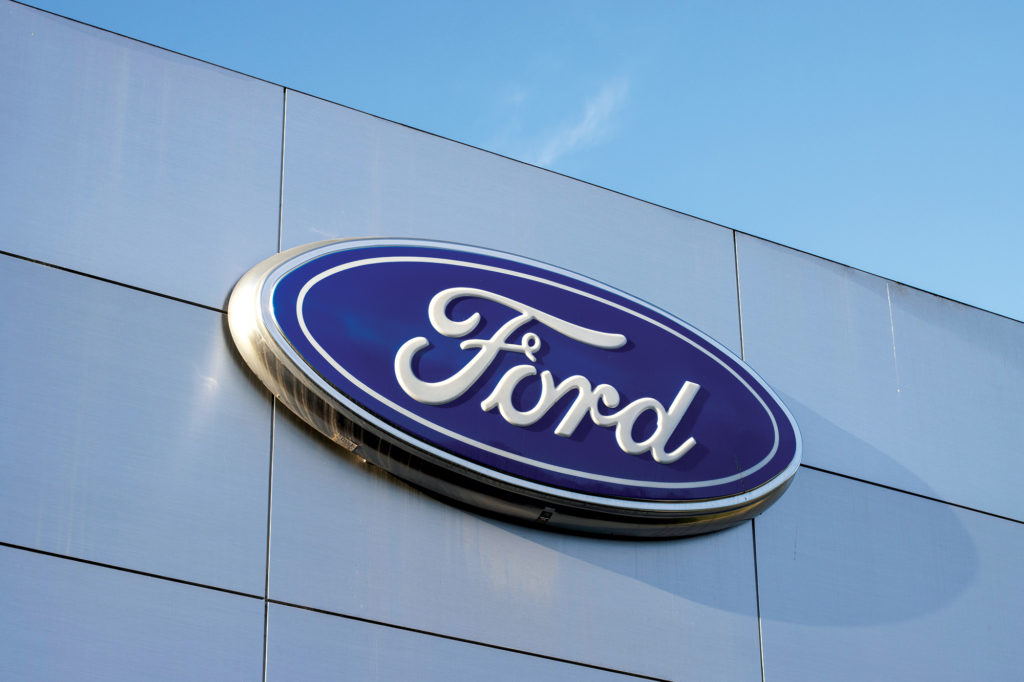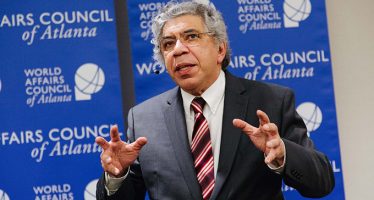Driving Through the Storm: How Ford Avoided a Bailout and Steered Towards the Future
The 2008 financial crisis brought the American auto industry to the brink of collapse. While General Motors and Chrysler relied on government bailouts to survive, Ford Motor Company charted a different course. Under the leadership of CEO Alan Mulally, Ford not only avoided a bailout but emerged stronger—through clear vision, bold strategy, and a renewed focus on innovation and operational discipline.
In 2006, when Mulally arrived at Ford from Boeing, the company was in trouble. Saddled with inefficiencies, burdened by an overly complex product lineup, and losing market share to both domestic and foreign competitors, Ford was struggling to define its future. But Mulally, with no prior experience in the automotive sector, brought a fresh perspective and a willingness to challenge conventional thinking.

His answer was the One Ford plan—a sweeping strategy to unify Ford’s global operations, streamline its vehicle platforms, improve fuel efficiency, and foster a culture of accountability and collaboration. It was a plan designed not just to save the company, but to transform it.
At the heart of One Ford was the drive to reduce complexity. For years, Ford had been producing dozens of models across different regional markets, often built on entirely different platforms. Mulally saw this as both inefficient and expensive. He initiated a global product strategy that reduced the number of vehicle platforms and focused on developing cars that could appeal to a broad range of international markets. Models like the Ford Focus and the Fiesta would soon become global bestsellers.
The streamlining of operations yielded significant cost savings and improved quality control, enabling Ford to redirect resources into innovation—particularly in the area of fuel efficiency. Anticipating a shift in consumer demand, Mulally bet on smaller, more efficient vehicles at a time when gas-guzzling trucks and SUVs still dominated the American market. He prioritised the development of fuel-saving technologies and alternative powertrains, including hybrid and electric options.
Internally, Mulally instilled a new culture of transparency, teamwork, and discipline. He eliminated silos across departments and introduced a system of weekly business plan review meetings, where executives were expected to speak candidly about challenges, setbacks, and metrics. These meetings created a new sense of accountability and cohesion at the leadership level. Problems could be surfaced and solved collaboratively, rather than hidden or ignored.
This cultural reset proved just as important as the operational overhaul. As the 2008 financial crisis intensified, Ford—thanks to the groundwork laid by One Ford—was far better prepared than its Detroit peers. The company had already secured $23.5 billion in private credit before the collapse of Lehman Brothers, giving it the liquidity to ride out the storm.
While General Motors and Chrysler were forced to accept government bailouts to stay afloat, Ford stood on its own. This decision—part financial prudence, part brand positioning—paid dividends. Ford capitalised on its independence in marketing campaigns, framing itself as the American car company that didn’t take taxpayer money. The message resonated strongly with consumers.
Post-crisis, the company accelerated its product transformation. The sleek, fuel-efficient Ford Fusion, the revamped Focus, and its range of EcoBoost engines won both critical and commercial acclaim. Ford was no longer just a symbol of industrial Americana—it was becoming a technology-forward, globally competitive brand.
Mulally’s tenure at Ford, which ended in 2014, is now widely regarded as one of the most successful corporate turnarounds in modern business history. By the time he stepped down, Ford had returned to profitability, regained consumer trust, and reasserted itself as a global leader in automotive innovation. His leadership style—marked by humility, consistency, and clarity—helped transform a beleaguered industrial giant into a leaner, more agile business.
Importantly, Ford’s story is not just about surviving a crisis. It’s about the power of proactive leadership, of anticipating change rather than reacting to it. Mulally recognised shifting consumer preferences well before fuel prices spiked. He placed long-term bets on efficiency, global platforms, and team-based execution that gave Ford a head start on its transformation—even before the crisis demanded it.
The company’s ability to stay afloat without a bailout also carried symbolic weight. In an era of corporate bailouts and moral hazard, Ford’s stand became a point of pride—for the company and for many Americans. It proved that even in the face of extreme headwinds, strong leadership and strategic clarity could still make the difference.
Of course, challenges remain. The auto industry is now in the midst of a new era of disruption, led by electrification, autonomous driving, and digital mobility services. Ford, like all legacy automakers, must continue to evolve. But it does so from a position of strength—thanks in large part to the resilience and realignment sparked under Mulally’s watch.
Ford’s survival during the financial crisis wasn’t just luck. It was the result of bold decisions, long-term thinking, and a cultural transformation that prioritised focus, simplicity, and accountability. The One Ford vision united the company behind a shared mission and laid the groundwork for its continued success.
In a business world often driven by quarterly results and short-term fixes, Ford’s turnaround stands as a reminder that clarity of purpose, trust in your team, and a willingness to adapt are the real engines of longevity. As the company continues to navigate the challenges of a changing automotive landscape, the lessons of the Mulally era remain deeply embedded in its DNA—and still steering it forward.
You may have an interest in also reading…
Turning Promises Into Reality – The Business Case for Gender Equality in Achieving the SDGs
By Paula Tavares and Otaviano Canuto As world leaders gathered this month for high-level talks at the 74th United
A Passion for Inclusivity and the Arts: Meet the Chief Exec of an Islamic Bank
Mufaddal Idris Khumri, CEO and managing director of the Maldives Islamic Bank, has deep expertise in the sector… Mufaddal Idris
Global Banking Alliance for Women – GBA: Banking the Female Economy
Inez Murray is the CEO of the Global Banking Alliance for Women, a global consortium of financial institutions driving women’s

















































































